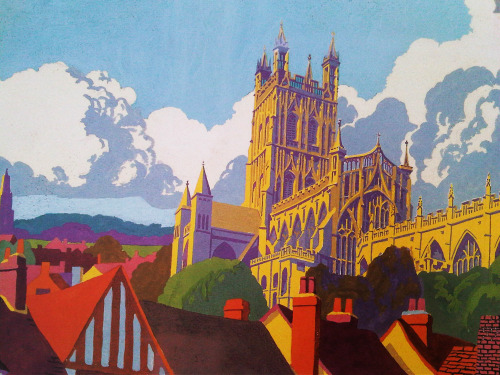
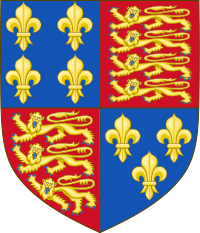
Grand Normandy is a Cryptic Nation, formed at the end of the Hundred Years' War. It is a Cryptic superpower—old, populous, widespread, wealthy, and influential. (Still smaller than Monaco and, of course, unknown to the prosaic world.)
Languages: Chenelaise ("shen-el-ey-z"), English, and French. Chenelaise started as a creole of English and Norman French. Most Grand Normans are trilingual in these and often know additional languages, since there are Grand Norman enclaves in Russia, Italy, and so on.
Grand Normans will often shift freely between French and English forms of the names of things, places, and people, if both exist: e.g. Stephen/Etienne and Alice/Alix.
Honorifics: Senair (m), Domna (f), or titles of rank
See also the Glossary.

Religions: Avignese Catholicism, followed by (in order) Roman, Orthodox, Celtic, and Western Catholicism. So, yes, Catholic, but you can shop around and it's a buyers' market. See The Sundered Church.
There are small minorities of Protestants (including Sundered forms of Anglican) and Jews. There may be visitors and residents of other religious positions, but they are not accepted as subjects and are at legal and social disadvantages.
The Crown reserves the right to appoint bishops in any of the Catholic churches. The upper levels of government are entirely Catholic in one form or another.
Veneration of saints is widely practiced by all the Catholics and Anglican Protestants (very "high church"). Saints frequently invoked include:
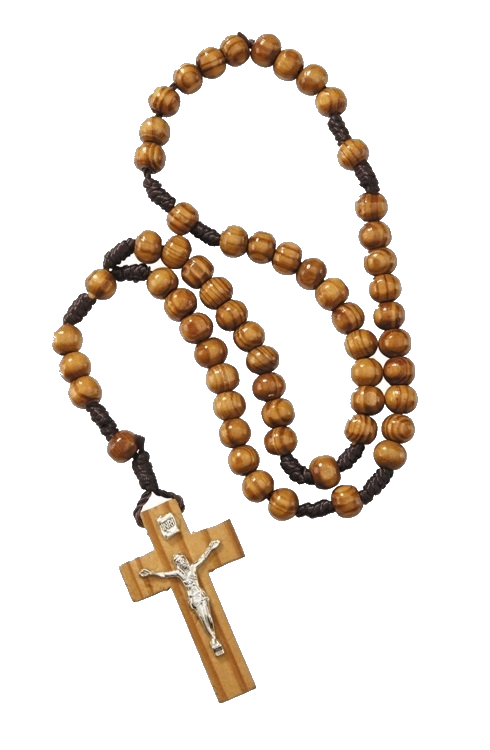
Whether the saints take any actual interest in this is not generally known, but swearing a promise by them usually activates a Grand Norman's name geas, as if they had sworn by their True Name (baptismal name).
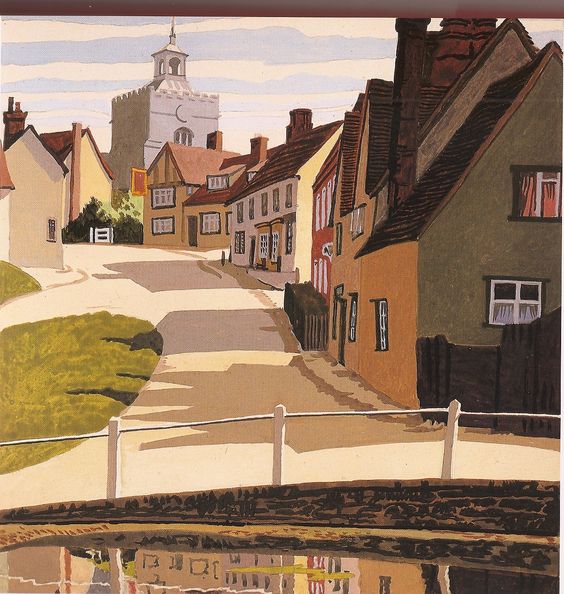 Communications and Privacy: Grand Normans make full use of modern communications, including "Nor'Net," "Norréseau," the hidden and encrypted channels and servers used by Grand Normans and their customers.
Communications and Privacy: Grand Normans make full use of modern communications, including "Nor'Net," "Norréseau," the hidden and encrypted channels and servers used by Grand Normans and their customers.
Grand Normans also use magical methods of communication, notably astral couriers, mainly shamanistic mages and benandante. But these are expensive and can be intercepted.
Grand Normandy has three newspapers, now on-line for improved Sundering: Le Miroir Normand (most conservative of the three), The Norman Chronicle, and La Tribune du Canal (most liberal of the three). Scholarly Grand Norman mages also follow Acta Kerdeana when they can.
To keep private from magical snooping, Grand Normans often wear counter-charms and keep them around their homes. This is common enough that the presence of such a charm cannot be taken as evidence of guilt.
Styles: —
In general, Grand Normans dress and groom to blend in with the surrounding prosaic culture.
However, on formal occasions, they dress like a very good ren-fair if at all possible.
The majority Catholic Grand Normans often wear crucifixes and carry rosaries.
The majority Catholic Grand Normans, and even some of the others, reflexively cross themselves in tense or solemn situations.
Grand Normans often wear minor charms, mixed in with saints' medals.
Cuisine: Varied. "Home-style" is a mix of modern French and Victorian English, but "varied" is a better descriptor. Duck, goose, swan, and pork are not on the menu, any more than dog, cat, or horse.
Tipple: wine; watered wine is very freely distributed, including to children.
Family: —
Magic: —
Marginal Populations:—
Points of Interest:—
Annoying Habits: —
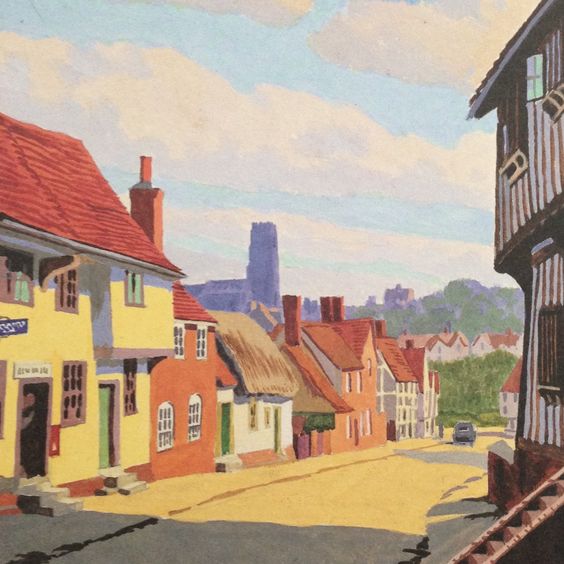
Possessions: Grand Norman holdings are informally divisible into outposts and enclaves. Outposts are areas, usually in cities, frequented by transients and traders, staffed by members of the Vanguard, plus some of the Navy for seaports, and some of the Magery as needed. (See Military.)
Enclaves are permanents residential areas, neighborhoods or entire small villages. Each is governed by a squire, often a baron, and is policed by some members of the Constabulary. (See Military.)
Grand Normandy has enclaves scattered through England, France, Sicily, Russia, Ireland, Wales, Canada, Australia, New Zealand, Scandinavia, and northern Africa. Efforts to set up enclaves in the United States and India have been actively repelled.
Sundered enclaves include:
Government:
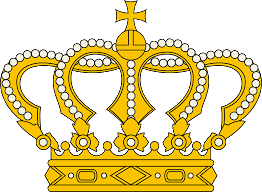
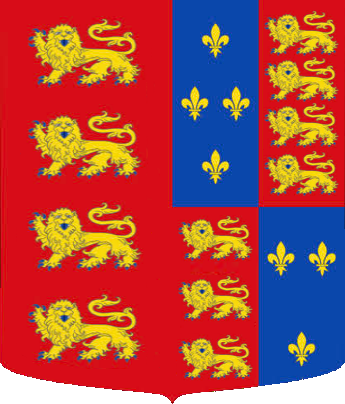 The basic idea of Grand Normandy is that it is both French and English. Therefore, it is important to the social cohesion of Grand Normandy that it have two seats for the Crown, one English (Normand House), one French (Le Vignoble de Guillaume), and that the monarch spend considerable time in both. To maintain a constant royal presence in both, beyond the presence of the monarch, the two seats are duchies held by the Dukes of the English and French Palaces, sometimes called the Duke of the House and the Duke of the Vinyard. The dukes or duchesses of the the palaces are members of the royal family, often princes or princesses in their own right, usually older and not likely to become monarch or want to. All the chains of command specific to the palaces, military, economic, and administrative, lead up to them.
The basic idea of Grand Normandy is that it is both French and English. Therefore, it is important to the social cohesion of Grand Normandy that it have two seats for the Crown, one English (Normand House), one French (Le Vignoble de Guillaume), and that the monarch spend considerable time in both. To maintain a constant royal presence in both, beyond the presence of the monarch, the two seats are duchies held by the Dukes of the English and French Palaces, sometimes called the Duke of the House and the Duke of the Vinyard. The dukes or duchesses of the the palaces are members of the royal family, often princes or princesses in their own right, usually older and not likely to become monarch or want to. All the chains of command specific to the palaces, military, economic, and administrative, lead up to them.
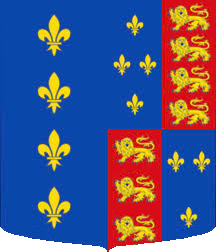
Student Prince: Not by law, but by tradition dating back to the early 19th century, young members of the royal family do a hitch in the military like everyone else. The trick is, they do their hitch magically disguised and under false ID, so they are not recognized as royals. The young royal drops the disguise and surfaces again in three years, which usually coincides with the end of their hitch. There are several results:
If the military seems a poor choice (e.g. because the royal family is short on heirs), the hitch might be as a postulant in a service-oriented, not contemplative, monastic order.
"Graduate student princes" and princesses are occasionally sent out for another stint living in the monde-minor, the unSundered world.
Royals are great trend-setters, so noble families sometimes send their own children "into service" too, as "student lords." But not all houses have the bureaucratic and magical resources that the Crown has, so the practice is spottier. However, Grand Normandy excels at false IDs, so it's not very hard to send a sufficiently obscure scion, undisguised, to a remote posting with a fake set of papers.
Military: Every able-bodied Grand Norman adult is expected to do a three-year hitch in the military, at a minimum, and full military careers have good status. The Infantry or Navy are the default branches. The Student Prince custom is an incognito version of this for the aristocracy.
You are generally supposed to start your hitch by age 28 at the latest. (Grand Normans come of age at 14 and like to do things in sevens; if you are eager, you might be able to volunteer at 14). You start getting letters about it at age 21, if you haven't served yet, but there are ways to put it off, including:
After 28, if you've still done nothing, they'll want to know a good reason why. Your squire-baron will have a lot of input. ("He's still brilliant in the vineyards. You can't have him.")
After doing your initial hitch (different durations for different branches), you are free to stay or take discharge, if not in the middle of a mission and if they want to keep you.
There are eight branches of the Grand Norman military:
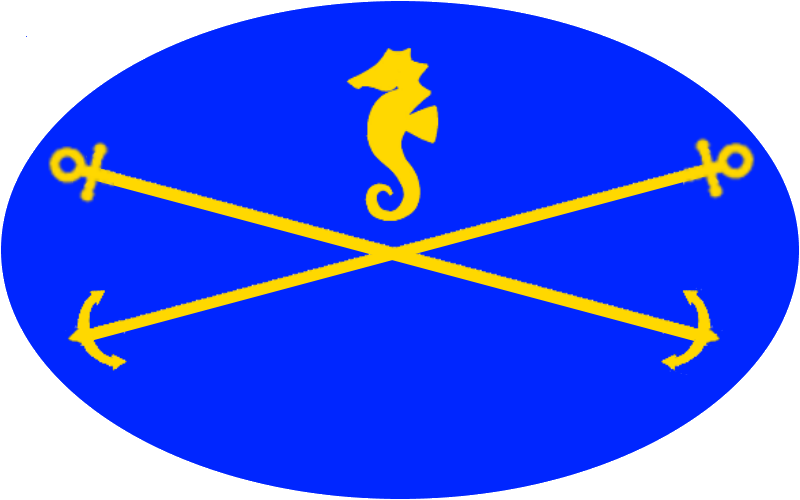
Three-year initial hitch. The navy is fairly well gender-integrated, perhaps because of the influence of the mermaids. For those of a maritime disposition who aren't suitable to the military, there are the tertiaries of St. Nicholas.
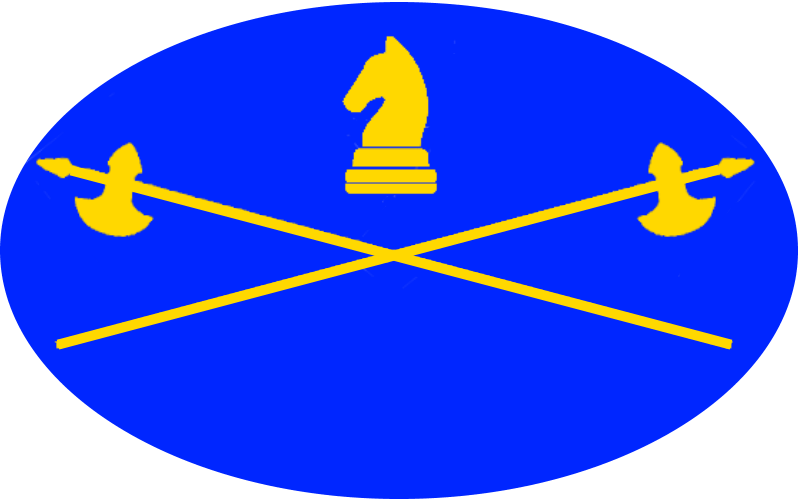
Three-year initial hitch. They are fairly lenient about letting in 14-year-olds, though these are kept away from combat. Since Grand Normandy is old-fashioned, women in the infantry are not generally trained for combat, and in fact were not in the infantry at all until the 20th century. Instead, they served their hitch as tertiaries in a religious order, doing the same support work, and some of them still do that from personal piety or because the tertiaries suffer no glass ceiling. There are also male tertiaries, though these are rarer. The available orders are of Sts. Teresa, Dunstan, and Nicholas.
This is also probably why the beginning hitch is 14 years; this is supposed to be a career and a permanent solution to the question of what to do with you. Fairly lenient about letting in 14-year-olds. Male-heavy, but there is a female presence because (1) some recent monarchs have been somewhat progressive, (2) Grand Normandy is not wholly immune to the surrounding mundane culture, much as they would like to be, and (3) it is an additional way of disposing of extraneous daughters. Includes a number of members of the Sundered and equestrian Order of St. Martin, but you can't be a tertiary of St. Martin as your national service.
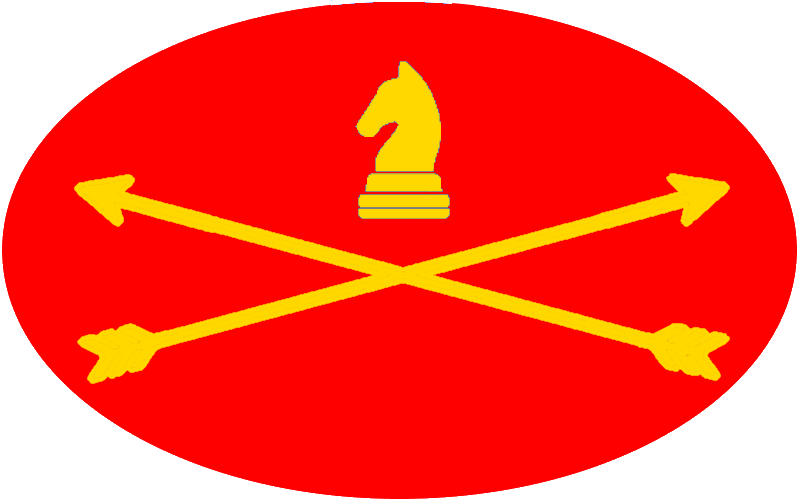
The beginning hitch is 14 years, copying the older Standard Cavalry. The DC makes volunteers wait until 16; perhaps they want most of their lads to have had practice going through a human puberty before hitting them with an equine one. Like the SC, it has a number of monks of St. Martin. It's all male because the spell doesn't work on females.
Seven-year initial hitch; most are lifers. It's very hard to get in before age 21 (though they have a fondness for employing young "Baker Street Irregulars") and they've been gender-integrated forever because sneaky and women have always gone together just fine, though there may have been some stuff like "Girls shouldn't do parkour." ("Yeah, but they're tops at lock-picking.")
Theoretically, you can do a three-year hitch as a deputy for your national service, but they often don't want any. About the only way to get in before age 21 is as some kind of "cadet" doing support scut-work, but that might be a good way to get your national service out of the way. Tends to be very male-heavy and glass-ceilinged, though if your squire baron is actually a baroness, it's better.
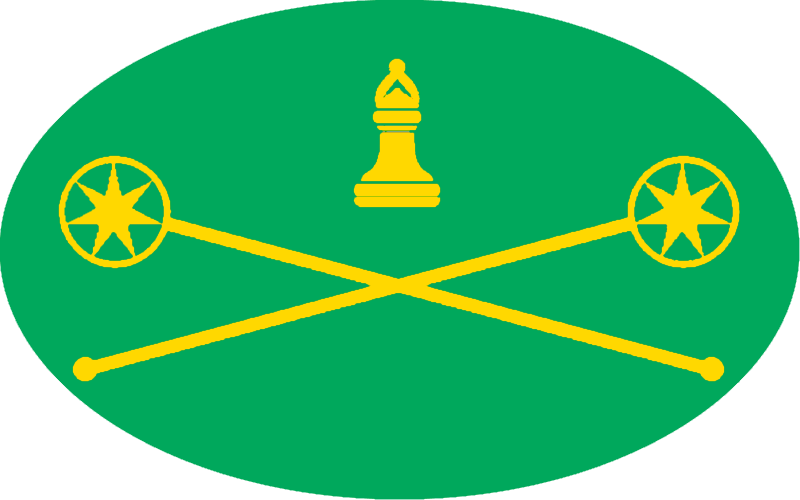
You either joined as a career move when an adult or were something of a magical wunderkind and became an official, govenmental sorceror's apprentice for a seven-year hitch. Indeed, this is how Grand Normandy likes to train its magical wunderkinder, as a general rule, so you might not get officially conscripted but it might be hard to tell the difference if your family and the squire baron are both pushing for it. The magery works closely with, and shares personnel with, the Alicians and the Knights of St. Alice. You can't serve your hitch as an Alician teritary, but entering the Order is fully acceptable as equivalent service. Was always gender-integrated.
Foreign Relations: Grand Normandy is friendly with (that is, cooperates with; there are often old grudges):
Grand Normandy is at odds with:
Economy: Grand Normandy made and makes its fortune by ancestral "viking" methods, as traders, raiders, and mercenaries, but is also now widely known for goods and services.
Famous Grand Norman wares:
Famous Grand Norman services:
Currency: The nujar, from nuit argenté, "silver night." Symbol: η. A nujar contains ten sesteens. e.g. η12.3 or η12s3 old-style. Exchange rate: 1 nujar = £100 = 1 nx (10 psi pts). The nujar is used mostly for accounting; cash is usually foreign coinage and scrip. Nujar coins are rare enough to be worth more than their face value.
History: Grand Normandy is 560+ years old, so you must excuse historical notes containing only some early and some recent highlights.
A proper Grand Norman is loyal to the Crown, a good Catholic of some sort, cosmopolitan, and comfortable with magic. "Crown, cosmos, church, and charm."
♔
A proper Grand Norman is a fan of the royal family or at least part of it. If they can't stomach the family as a whole or the current monarch, they have some member(s) that they like. "It was better in King Robert's day." "It's a pity Eleanor didn't get the throne." "If they don't elect Prince Tom, they're a pack of fools." Of course, normally or normatively, it's "King Stephen is doing a great job. Long may he reign!" plus glowing words about the queen and kids.
A great way to activate a Grand Norman's code duello is to start dissing the royal family. And they know they won't get called on it by their authorities, unless the circumstances are particularly stupid.
This fandom does not particularly extend to the cabinet and certainly not to the nobility as a class.
♔
To be Avignese Catholic is, of course, the default. To be some other kind of Catholic is a minor eccentricity, charitably attributed to family tradition, if possible. See The Sundered Church.
Royalty and nobility are allowed a lot of such eccentricity, and it is often unclear which kind of Catholic they are. They need some church for legitimacy, but it is openly recognized that Crown and gentry play the churches off against one another. For the rest, the norm is to be officially Avignese while treating the different forms of Catholicism interchangably most of the time.
The Grand Norman Anglicans have moved up in the world since the 19th century when, following the example of other national Anglican churches in the monde-minor, they set up their own Council of Bishops (all five of them) and severed ties with the British monarchy—easily done, since the monarchy had never heard of them. They can be monastic, so they are generally wedged in as a species of Catholic, though an inferior one in the view of the others. As good Anglicans, they claim to be both Catholic and Protestant, but this is not brought up much.
To be Protestant or Jewish is decidedly eccentric and being either one clips your "Good Grand Norman" score, though you can make up for it in some other way. Military service is a good one, or of course monastic– Oops! Not monastic. See? They're an eccentric lot. Say, then, rather, that the non-military ways you can recoup your score are high professional achievement, lower or middle range government service (because that's as high as you'll get), and rather loud patriotism.
There are also some special, not-really-official patriotic high-achievers' clubs that sometimes style themselves "orders of knighthood" and are for non-Catholics to gain prestige by joining, sort of like Knights of Columbus is Masons for Catholics. They almost inevitably look at least a little lame to standard Catholic Grand Normans. "Yeah, we keep kosher, but try the soy-based fake bacon. It's good. Really."
(To join the Dedicated Cavalry is an excellent way to make up for being Protestant or Jewish. "Look! I permanently joined the nation's private species.")
♔
Because Grand Normandy is widely dispersed and mercantile, it's very Grand Norman to be cosmopolitan. It's high status to know the language, do business, and have prosaic identities in several countries. Even if your line of work doesn't facilitate that, you can still learn languages and customs, and be well-traveled for holidays. You may well criticize any customs that are counter-Grand-Norman, but you do know them.
Number of languages is a quick gauge of cosmopolitanism. Chenelaise, English, and French are a minimum for respectability, and you really ought to be able to do English and French without foreign accent. Two or three more is quite good.
♔
As for magic, any normal Grand Norman has a name geas and loyalty geas, and at least enough savoir faire with fays to be safe with them in ordinary encounters. Beyond that, they should know the ins and outs of the magics that impinge on their career. That's the bare minimum.
They get real credit for being blasé, chill, about weirdness. "Oh, look, an actual witch on a broomstick. Haven't seen one of those in a while." (This attitude is a definite help to centaurs home on leave.)
Being transformed or working daily with mages or fays easily satisfies the magic requirement. And of course if you actually do magic, you're quite safe on that score.
♔
Crown, church, and charm all meet up in the cults of the three national saints, Alice, Hugh, and Geoffrey. To have a personal devotion to one or more of these ups your score. To be disrespectful of any saints is bad for your piety score, but to be disrespectful of these saints hits your Good Grand Norman score too.
To be critical of their knightly orders raises questions, but only if you're over the top about it, since all know that the knights are only human.
To show proper respect for the saints, do not ignore (or worse, express distaste for) their feast days or make overly frivolous oaths about them. The latter depends on company. If a cavalryman wants to make up oaths about "Martin's jodhpurs" among his fellows, you have to be a real stickler to more than roll your eyes. ("Hey, the guy was a soldier. Don't tell me he didn't hear a lot worse down here." And anyway, he's the cavalry's own patron, so it's between them.) But if someone swears by "Alice's fluttery little eyelashes" or worse "Alice's underwire," dowagers, clerics, and other social arbiters will give them a Look, and you really shouldn't say such things in front of children.
Folk rituals involving abuse of these saints' images, equivalent to burying St. Joseph's statue until he gets your house sold or however that went, show disrespect and both religious and magical ignorance.
Grand Normandy gets its code of magical behavior from St. Aalis (now commonly called "St. Alice"), a 12th-century missionary to the fays. She had great success with the Channel Fays and also founded a few small religious houses (of mortals). These were, then, already in place when Grand Normandy was founded with the help of the Channel Fays in the 15th century.
Major points of the Alician code of conduct:
Concerning fays and other such creatures, give and take only from charity on your part or theirs, or through just trade, not from claims to worship or of authority. (Contrariwise, the fays must make no claim to receiving worship.)
Concerning the dead, your first duty is to pray for them and urge them to seek Heaven; otherwise treat them gently as you would the sick. Give and take from them only in charity and justice. If they be hostile, pray against them but do not cease to pray for their salvation.
Remember that all creatures with knowledge of good and evil are your brothers in Adam.
Remember that the christened fays are your brothers in Christ. (She went about Marking and baptizing fays pretty freely.)
Remember that folk of the monde-minor are your brothers just as are the others of your nation. (The "monde-minor" or le monde-mineur is the current Grand Norman name for the unSundered world.)
She famously urged her mortal protégés and the Channel Fays to seek help from and give help to each other in charity: "Return to them, and they will return to you. Keep faith with them, and they will keep faith with you." Hence the sign-countersign.
She left plenty of room for argument. How do you tell what spirits are infernal? What are the boundaries between worship and respect? "All creatures with knowledge of good and evil" would appear to include angels and demons and djinn, along with other total non-humans; "brothers in Adam"? Really? (The often sharply-worded answer of the most revered Alician counselors has been that if you concentrate on the "justice and charity" parts and not on how near you can get to those borders without stepping over, you won't often go wrong.)
†
Window-dressing:
A soul cake, a soul cake,
Eve's mark, Adam's mark, good St. Alice,
(According to legend, Alice generally conferred Adam's Mark by giving the fay a piece of blessed food. Currently, Alician practice for giving Adam's Mark to a fay is to feed it three blessed oat-cakes ("soul cakes") and then immediately baptize it, making it Adamite and Christian in one go. Soul cakes are traditional gifts from mortals to fays on St. Alice's Day, Hallowe'en, Christmas, and Easter.)
This pair of rhymes is called "Fire and Water":
Mortal dwelling o'er the sea,
The rhymes have, of course, no magic of their own, but at times they have been popular as invocations. Fay and mortal mages conversant with both nymic magic and glamour have used them in magical pacts, so that when one party of a fay/mortal partnership speaks their rhyme, the other hears it. There is no direct mention of Alice in the rhymes, but they are part of the partnership between the Channel Fays and the Grand Normans that traces back to her, and clearly echo the Alician sign and countersign, "Return and we return," "Keep faith and so do we."
†
Alice was a Roman Catholic, Sundered early in her career. The Avignese and other forms of esoteric Catholicism all recognize her, though.
Alician monks and nuns help the community in magical matters. This doesn't mean all of them are mages, though the percentage is higher than in the general population; they may simply know about this stuff, and be willing (or sent) to step in. As time has gone by, they have branched out into teaching and health care, too, starting with teaching about magic and magical cures. Their habits are blue-gray.
Their basic job is to rescue people from magical dangers and to assist the Alician monastics. The head, the Commander, is an Alician abbot or abbess, or a bishop who is an Alician monk. The knights and dames of the order are either Alician monastics or have taken a vow of obedience only, not full monastic vows. Membership is by approval on application, or offered as an honor (in which case only a promise of assistance, not a vow of obedience, is required). Being recommended by, say, a monarch or bishop or such is a big help. Most members are Grand Normans, but foreign and fay members also exist.
The Channel Fays, Grand Normandy's fairy patrons as formalized in the Channel Pact, are headquartered on a small island in the English Channel, carefully hidden by Sundering-reinforced glamour.
The hidden isle is called Webney or Tol Ened (on old maps, Moyen Île or Medio Insulam). It is heavily forested by the Channelwood, La Forêt de Chenel, though there is a place like a large hunting lodge at the shore, where Grand Normans have their embassy. The forest is liberally furnished with clearings, paths, mounds, and standing stones.
Of course there's a major portal off the home zone.
The whole place is within an ace of sliding off and becoming its own para-zone. Bad for Grand Normandy if it does. ... Isn't it? (Would their patrons be more comfortably placed for themselves? For Grand Normandy? For both? Would Grand Normandy start following them off-zone faster?)
Besides many individual fays, there are two troops, Red and White. They are owned by the Red Lord and Lady and by the White Lord and Lady, respectively.
♕
The White Lady, Silefrodel, is preeminent as a foreteller.
♔
The Red Lord, Caranhîr, is preeminent in the Dreaming.
♔
The White Lord, Faëntûr, is the most mortal-facing lord of Webney and general diplomat.
There are also:
♘
The Errant Knight, Raïnrohir, is an ancient ex-mortal, a roving protector, knight errant, and inventor.
The White Lord and Lady are husband and wife, so some people assume the same is true of the Red Lord and Lady, or even the Blood Lady and the Errant Knight, but this is not true.
Many of the remaining fays are animal-themed. There is also a fay diaspora that is much bigger than the island population. There is a steady traffic of fays to and from the island.
The Channel Pact, negotiated by St. Hugh, third king of Grand Normandy, with the Lords and Ladies of the Channel Fays, is at the center of mortal-fay relations in Grand Normandy, though it is certainly not comprehensive of those relations. Main points:
That's the bare bones. Mortals should bear in mind that the mortal parties to the Pact are the Grand Norman government as a whole, but the fay parties to the Pact are the six individual Lords and Ladies of the Channel Fays: the Red Lord and Lady, the White Lord and Lady, the Blood Lady, and the Errant Knight. This means that, on the fay side, enforcement is, yes, pretty thorough, but also ... variegated. If oaths and geases don't seem to be doing the trick with a hostile fay, by all means try threats: "The White Lord wouldn't like that!" or worse, "What would the Blood Lady think?"
The actual partnership between Grand Normandy and the Channel Fays is much more than what is laid down in the Pact, and it is obvious that Grand Normandy would not be the Cryptic superpower without its fay friends.
Grand Normans get free commerce with fays, including classes and levels of magic that are beyond mortal mages. In fortunate cases:
And all of this combines to keep Grand Normandy very solidly Sundered.
The Channel Fays get access to safe areas of the mortal world. They get paid, in favors, vis (prana), sometimes even leaven, and in mortal money that can be used to buy goods you seldom get in fairylands, e.g. cell phones or airplane tickets or Havana cigars you don't have to steal. They have a ready source of Adam's Marks.
They also get interesting occupation. Although Faerie holds plenty of interest by itself, and although most fays regard the passage of any amount of time with equanimity, there is still a clear attraction to new and interesting goings-on in the mortal world, and it is nice to be able to observe or take part without worrying about glamour or shapeshifting.
The end result is that outsider Sundered often get the impression that Grand Normandy and the Channel Fays are a single polity with two main ethnic groups, mortal and fay.
Return to Cryptic Nations
Copyright © Earl Wajenberg, 2018, 2020, 2021
The institution of the "Student Prince" custom also began at this time.
Proper Grand Normans
The general standards of Grand Normandy

St. Alice and the Alicians
Have no dealings with infernal spirits. Only flee them or expel them.
It is widely thought that one species can summon the other, or has a better chance of it, by going to such a shrine and calling out "Return and we return." Really, there is a significant chance of working only if you find a half-finished one (a sign someone wants to meet), finish it, and give the sign.
Saint Alice, so the story goes,
Seized a goblin by the nose.
He gave out so loud a roar
That it was heard six mile and more.
Please, Saint Alice, a soul cake.
Milk and oats and a bit of leaven,
Anything to see a soul to heaven.
One for Peter, two for Paul,
Three for Him Who made us all.
Bake the cake, serve bread and chalice.
Holy wine and holy bread,
Oak and ash and hawthorn red.
I was going with St. Alice
To see a king in a golden palace,
A palace built on a dozen stones.
The palace guards have a dozen thrones.
The palace gates have a dozen locks.
The palace walls are a golden box.
Read the riddle of St. Alice
To see the king in the golden palace.
Fairy hid in the open sea,
Hear thy sister(brother). Come help me.
And I will help thee in my turn,
Lest oak and ash and hawthorn burn.
Hear thy sister(brother). Come help me.
And I will help thee in my turn,
Lest oak and ash and hawthorn burn.
The Knights of St. Alice
The Knights of Sts. Hugh & Geoffrey
Their duties are similar to those of the St. Alice knights, but more military, less thaumaturgical. They have no associated monastic order; their Commander is the court wizard of Grand Normandy, who of course serves the Crown. Almost all members are Grand Normans, but a few outsiders, including fays, have been offered membership as an honor.

The Channel Fays
♕
The Red Lady, Bornbereth, is preeminent in flitting and leading trooping and rades.
♛
The Wild Hunt leader is a sidhe called the Blood Lady, Agarrodel, and has a penchant for collecting heads. She leads either troop.
The Pact
Return to Inkliverse
Return to Wind Off the Hilltop